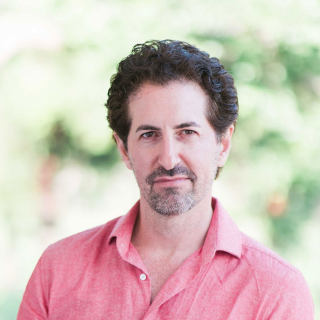An Experiment that Actually Looks at Consciousness, and Paves the Road to Potentially Building Consciousness in Machines

Description
Moran Cerf is a professor of neuroscience and business (Columbia University) and the Alfred P. Sloan professor of screenwriting (AFI). In his research, Prof. Cerf studies patients undergoing brain surgery with neural implants embedded deep inside their heads. His work addresses questions concerning consciousness, dreams, behavior change, and decision-making. Additionally, his work has paved the way for some key neuroscience disciplines (i.e., advanced brain-machine interfaces) and is at the heart of numerous commercial applications (i.e., BrainValue, Neuralink, etc.). Recently, he has been involved in implementing key lessons from his studies to help leaders improve key decision protocols (namely, the nuclear launch process).Prior, he spent a decade working in cybersecurity, as a hacker, and was a board member of several public companies.
Cerf published papers in academic journals (i.e., Nature, Science) and popular science ones (Scientific American, Wired, New Scientist, …). He is a contributor to numerous media outlets (Forbes, Atlantic, BBC, Bloomberg, Time, NYT, New Yorker, …) and his work has been portrayed in venues like CNN, Fox, or Netflix Explained and featured in TV shows such as Bull, Limitless, House, Mr. Robot, and more. He has published several books, including the recent graphic novel: "Brain Imaging: An Illustrated Guide to the Future of Neuroscience” and has made much of his research accessible via his public talks at TED, TEDx, DLD, or the WEF, gathering millions of views and a large following.Prof. Cerf is a 4-time US national story-telling champion (The Moth), a beneficiary of several awards and grants (including the President Excellence award), and was named one of the “40 leading professors below 40”.
Most importantly, he is left-handed.
Abstract
Many experiments, talks, books, and academic papers contain the term “consciousness” in their title. But as we come to learn about a “theory of consciousness”, an “empirical study of consciousness”, or an “explanation to consciousness” we are typically left wanting. Seemingly, most conversations about consciousness do not end up answering material questions about the phenomenon. Indeed, those conversations about consciousness often either repeat the questions in different words (i.e., redefining terms but not providing solutions), answer different/adjacent question (i.e., about attention or awareness), or pivot to philosophical musings about the topic without providing a concrete answer.
In this talk I will: 1) discuss an empirical work that actually looks at consciousness and touches on the way by which it is manifested in the human brain, 2) ruminate on how the results of this experiment (and recent similar works) pave a road to the potential building of consciousness in machines.
I will conclude by sharing insights on recent exchanges with leaders (namely, in the government and in the tech world) that, I believe, establish a trajectory towards a more seamless interface between advanced technology and human performance in the coming era of Artificial Intelligence.
